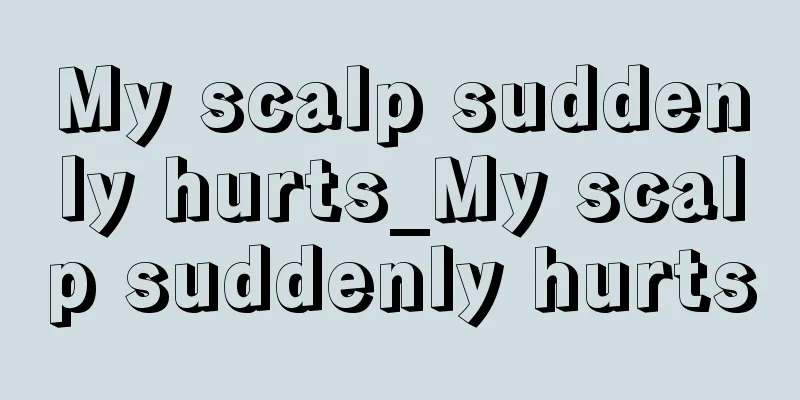Are anal fissures and anal bleeding also divided into stages? What are the types of anal fissures?

|
The anus is an important part of the body. It controls defecation and the physiological system at ordinary times. It is connected to the rectum. If there is a disease in the intestine, the anus will also have a disease. However, due to uncleanliness of the perianal area or diseases, without timely treatment, it will gradually cause anal fissures and anal bleeding. Anal fissures can be divided into two stages, fresh anal fissures and chronic anal fissures. The treatment and adjustment time of chronic anal fissures will be longer, but fresh fissures can be treated in the early stages through medicated sitz baths, topical ointments, and anti-inflammatory drugs. For the treatment of chronic fissures, anal dilation surgery or conservative methods can be used, but the premise is to first treat with conservative treatment. If conservative treatment is ineffective, it can be solved through surgery. Surgery is now very safe and will not cause complications to the human body. 1. Stages of anal fissure Clinically, anal fissures are often divided into fresh anal fissures and chronic anal fissures. Generally speaking, early anal fissures can be gradually relieved and healed by adjusting bowel movements and using topical medications. Chronic anal fissures often require surgery and other methods to treat. Others also have a three-stage classification method: Stage I anal fissure: fresh anal fissure or early anal fissure. The skin of the anal canal is superficially damaged, and the tissues around the wound are basically normal; Stage II anal fissure: also called simple anal fissure. An ulcerative fissure has formed in the anal canal, but there are no complications, such as hypertrophy of the anal papilla, sentinel piles, and subcutaneous fistulas. Stage III anal fissure: refers to old anal fissure, generally referring to anal fissure triad, but also includes tetralogy or pentagensis. Its manifestations are that the fissure is an old ulcer, combined with hypertrophy of the anal papilla and sentinel piles, or accompanied by subcutaneous fistula and anal crypt inflammation. 2. Treatment of anal fissure 1. The treatment of early anal fissure includes the following simple methods: Use laxatives, sitz baths after defecation, and topical anti-saprophytic ointments, including topical glyceryl nitrate or calcium channel blockers. 2. Chronic anal fissure Anal dilation or surgical treatment is possible. If conservative treatment is ineffective, surgical treatment is indicated. The surgery was very effective. It is not difficult for specialists to assess the tension of the sphincter before surgery, and mastering the degree of sphincter incision is the key to the effectiveness of the surgery. Anal dilation is a relatively conservative treatment method that can be performed under local anesthesia. The symptoms of first- and second-stage anal fissures are often significantly relieved after a single anal dilation treatment. |
<<: How can I repair my gastric mucosa?
>>: How to determine kidney yang deficiency and kidney yin deficiency?
Recommend
Shandong cuisine signature dish
We all know that the four major cuisines are Sich...
What are the treatments for stage III rectal cancer
Due to the many changes in people's diets now...
What are the reasons for high red blood cells in urine test
When we do a checkup at the hospital, we usually ...
What are the symptoms of early lung cancer patients? Early symptoms of lung cancer
In life, many people don’t know much about lung c...
What harm does neck lymph blockage do to the human body?
The blockage of lymph nodes in the neck is mostly...
What disease is dry mouth and numb tongue
The tongue is an important organ of the human bod...
Which part of the knee should be moxibustioned for cold
In autumn or spring, if people wear pants that ar...
What is the best way to treat seborrheic alopecia?
The phenomenon of seborrheic alopecia has always ...
What to do if a fish bone gets stuck in your throat?
Fish is rich in protein, which is higher in nutri...
Will smoking for four years cause lung cancer?
Will I get lung cancer if I smoke for four years?...
How many hours of deep sleep is good every day
Modern scientific research shows that people cann...
What are the benefits of drinking Huanghuangmiao tea
The yellow seedlings are dandelions, which are ri...
What is the normal range of alanine aminotransferase?
Alanine aminotransferase is an important referenc...
Is there a connection between a fetus’s love of movement and intelligence?
In the middle and late stages of pregnancy, pregn...
How to relieve itching after mosquito bites
I believe everyone has been bitten by insects, an...









